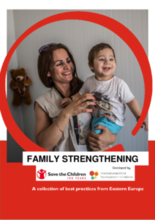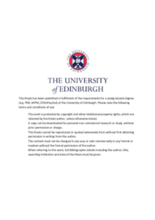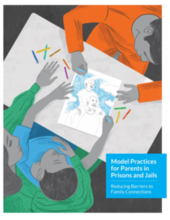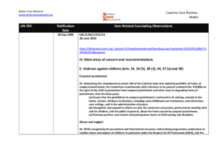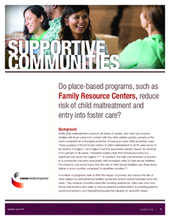Displaying 251 - 260 of 947
The aim of this report from Save the Children is to provide policymakers, service-providing organizations and child protection practitioners and child rights advocates with an easy to use reference document, to augment the implementation of support programmes for children and families in vulnerable circumstances.
The aim of this study was to assess the feasibility and acceptability of a home‐based intervention—Amagugu Asakhula—to promote nurturing interactions and healthy behaviours with the caregivers of preschool children.
Therapeutic Interventions with Babies and Young Children in Care is about the value of observation and close attention for babies and young children who may be vulnerable to psychological and attachment difficulties.
This study aims to explore the experiences of carers of children with cerebral palsy living in rural areas of Ghana who have received no rehabilitation services.
This study explores facilitators of and barriers to effective collaboration between workers at partner organizations working on a program focused on the reunification of housing-unstable families with their children in out-of-home placement in the US.
This collection of resources from UNICEF includes a call to action, policy brief, and evidence briefs focused on investing in family-friendly policies in the workplace.
This thesis paper explores (1) how children in care in the UK are making use of mobile communication devices for contact with members of their familial and friendship networks; (2) to what extent devices like the smartphone, tablets and computers either improve or hinder communication; and (3) how contact using mobile communication devices and Internet is being managed by foster carers and social workers.
The objective of this document, developed by the Bureau of Justice Assistance (BJA) and the National Institute of Corrections (NIC), in collaboration with the Urban Institute and Community Works West, is to detail a set of practices that correctional administrators in the United States can implement to remove barriers that inhibit children from cultivating or maintaining relationships with their incarcerated parents during and immediately after incarceration.
This country care review includes the care related Concluding Observations adopted by the Committee on the Rights of the Child and the Committee on the Rights of Persons with Disabilities.
This issue brief addresses the following questions: What are family resource centers? What are the defining characteristics of a family resource center? What do we know about the effectiveness of family resource centers in reducing child welfare involvement? What is the return on investment? What is missing from the research literature?

